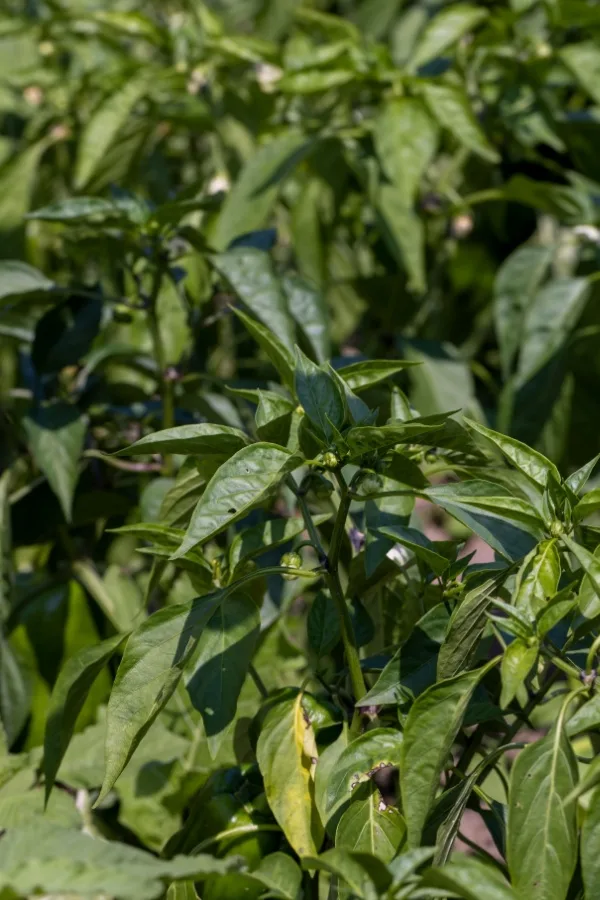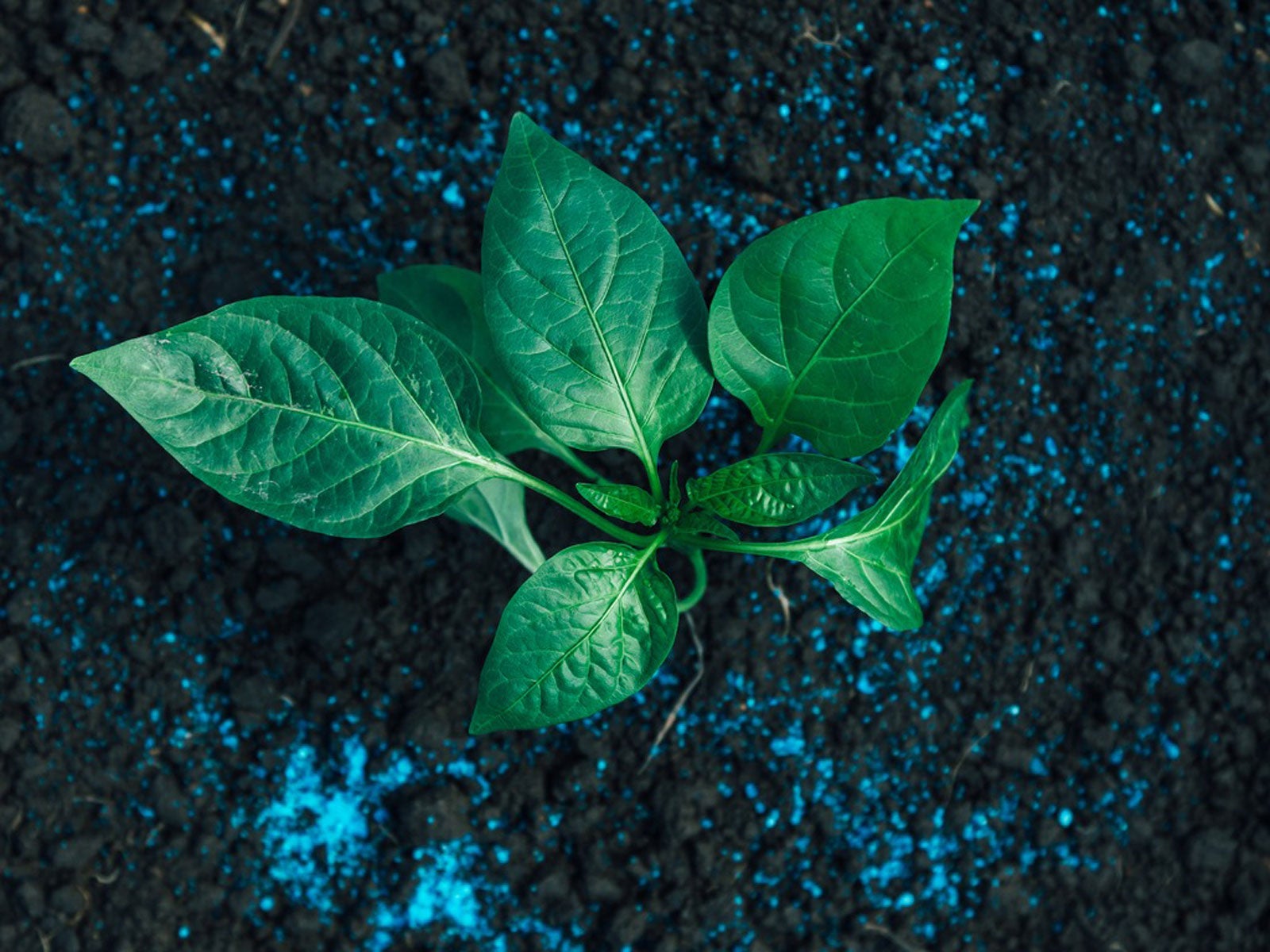Best Fertilizers for Peppers: Enhance Growth and Taste with Our Top Picks
Best Fertilizers for Peppers: Enhance Growth and Taste with Our Top Picks
Blog Article
Organic Vs. Synthetic Fertilizers: Which Is Best for Supporting Healthy And Balanced Pepper Plants?
In the realm of supporting healthy pepper plants, the choice in between artificial and organic fertilizers stands as a pivotal choice with significant ramifications. While both options goal to supply important nutrients to sustain plant growth, the nuances of their effect on the dirt, plant health, and the setting stimulate a discussion that echoes throughout the gardening neighborhood. Comprehending the unique benefits and possible risks of each plant food kind is vital for pepper cultivators looking for to enhance their returns while keeping a lasting and eco-conscious approach.
Benefits of Organic Fertilizers
Organic plant foods provide an environmentally-friendly and lasting technique to nourishing pepper plants, supplying essential nutrients without using artificial chemicals. These all-natural plant foods are originated from organic sources such as garden compost, manure, bone dish, and seaweed, advertising dirt health and wellness and biodiversity. Unlike synthetic plant foods, organic alternatives launch nutrients gradually, guaranteeing a steady and balanced supply for pepper plants to prosper.
One considerable advantage of organic fertilizers is their ability to boost dirt structure and water retention. By enhancing dirt health and wellness, natural fertilizers advertise beneficial microbial task, which aids in nutrient uptake by pepper plants. In addition, natural fertilizers minimize the risk of chemical run-off, shielding water resources from air pollution and safeguarding the environment.
Furthermore, organic fertilizers contribute to lasting dirt fertility by advertising the development of valuable dirt organisms. These microorganisms aid damage down raw material, releasing nutrients in a kind that is easily accessible to pepper plants. best fertilizers for peppers. By cultivating a healthy dirt community, organic fertilizers sustain lasting pepper cultivation techniques that profit both plants and the environment
Disadvantages of Synthetic Fertilizers
Synthetic plant foods, in comparison to their natural counterparts, pose numerous drawbacks when utilized to nourish pepper plants, impacting both plant health and ecological sustainability. One significant drawback of synthetic plant foods is their propensity to leach nutrients from the dirt promptly.
Additionally, the overuse of synthetic plant foods can contribute to water air pollution. Excess fertilizers not absorbed by plants can wash away right into water bodies, causing eutrophication, where algae blooms deplete oxygen levels in the water, hurting aquatic life. Synthetic fertilizers are usually obtained from non-renewable resources, such as fossil gas, contributing to carbon emissions and ecological destruction during their manufacturing.
Nutrient Absorption Contrast
When contrasting artificial and natural plant foods in terms of nutrient absorption, natural fertilizers have the benefit of giving a more balanced and slow-release source of nutrients. Organic fertilizers have a selection of macro and micronutrients that are not only valuable for the plants but likewise advertise healthy soil microbial activity, which assists in nutrient uptake.
Furthermore, organic fertilizers improve soil framework and water retention capability, enabling pepper plants to access nutrients much more efficiently. This better dirt high quality promotes origin blog advancement, making it possible for much better nutrient absorption. Synthetic plant foods, although originally boosting plant development due to their high nutrient focus, might impede long-term nutrient absorption by degrading dirt wellness in time.
Environmental Impact Factors To Consider

On the various other hand, synthetic fertilizers, although commonly more instantly offered and concentrated to plants, can have harmful impacts on the setting if not applied correctly (best fertilizers for peppers). Their manufacturing needs high energy inputs, causing greenhouse gas emissions and adding to climate adjustment. The drainage of excess artificial plant foods can infect water sources, leading to eutrophication and harming aquatic ecological communities.
Ideal Fertilizer Practices for Peppers
When feeding pepper plants, maximizing nutrient uptake and reducing ecological effect are vital considerations. To accomplish this, it is necessary to follow ideal plant food techniques customized to the particular great post to read requirements of pepper plants. One critical technique is to execute a dirt test prior to using any plant foods. This examination can identify the pH level of the dirt and determine any kind of nutrient shortages, assisting you in choosing one of the most ideal fertilizer formula.
One more essential method is to fertilize pepper plants at the correct time. Normally, peppers benefit from receiving plant food at growing and then again when they begin to flower. Over-fertilizing can lead to nutrient inequalities and hurt the plants, so it is vital to adhere to advised application rates.
Furthermore, picking a well balanced fertilizer with an NPK ratio that suits pepper plants' requirements is fundamental. Organic fertilizers, such as garden compost or manure, can be exceptional selections as they release nutrients slowly and improve soil framework over time. However, synthetic plant foods can offer a fast nutrient increase when required. Inevitably, integrating synthetic and natural fertilizers deliberately can aid support healthy pepper plants while lessening ecological impact.
Final Thought

Organic fertilizers provide an environmentally-friendly and sustainable technique to beneficial pepper plants, offering important nutrients without go to my site the use of artificial chemicals. Unlike artificial plant foods, organic options release nutrients gradually, making certain a balanced and stable supply for pepper plants to grow.
Artificial fertilizers, in comparison to their natural equivalents, posture different drawbacks when used to nurture pepper plants, affecting both plant health and wellness and environmental sustainability. When contrasting organic and synthetic fertilizers in terms of nutrient absorption, natural plant foods have the advantage of offering an extra balanced and slow-release source of nutrients.In addition, organic plant foods enhance soil structure and water retention capability, enabling pepper plants to gain access to nutrients much more effectively.
Report this page